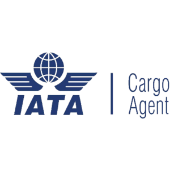Cookies Policy
This information document is intended for users to consider the presence and use of cookies on the site: https://www.skycouriers.ro
The information presented below is intended to inform the user more details about the placement, use and administration of “cookies” used by the site https://www.skycouriers.ro
Please read the following information carefully:
Cookies are small text files that can be used by websites to make their use more efficient. Your consent applies to the following domains and their sub-domains: https://www.skycouriers.ro
This site uses its own and third-party cookies to provide visitors with a much better browsing experience and services tailored to their needs and interests. In what we call “web 2.0”, “cookies” play an important role in facilitating access and delivery of multiple services that the user enjoys on the Internet, such as:
-Customizing certain settings such as: the language in which a site is viewed, the currency in which certain prices or prices are expressed, the options for various products (measures, other details, etc.) being kept in the shopping cart (and the storage of these options) – accessing old preferences through accessing the ” forward ” and ” back ” buttons;
-Cookies give site owners valuable feedback on how their sites are used by users, so that they can make them even more efficient and accessible to users;
-Allow multimedia or other applications from other sites to be included in a particular site to create a more valuable, useful and enjoyable browsing experience;
-Improving the efficiency of online advertising.
The law stipulates that we can store cookies on your device, if they are strictly necessary for the operation of this site. For all other types of cookies we need your permission.
WHAT IS “COOKIE”?
An “Internet Cookie” (term also known as “browser cookie” or “HTTP cookie” or simply “cookie”) is a small file, consisting of letters and numbers, which will be stored on your computer, mobile terminal or other equipment of a user accessing the Internet. The cookie is installed by a request issued by a web-server to a browser (eg Internet Explorer, Chrome) and is completely “passive” (it does not contain software, viruses or spyware and cannot access the information on the hard driver. user).
A cookie consists of 2 parts: the name and content or value of the cookie. Moreover, the duration of existence of a cookie is determined; technically, only the web server that sent the cookie can access it again when a user returns to the site associated with the respective web server.
Cookies themselves do not require personal information to be used and, in most cases, do not personally identify Internet users.
THERE ARE 2 LARGE CATEGORIES OF COOKIES:
Session cookies – these are temporarily stored in the cookie file of the web browser so that it can store them until the user exits the respective web-site or closes the browser window (eg when logging in / logging in to a webmail account or on social networks).
Persistent Cookies – These are stored on the hard drive of a computer or equipment (and generally depends on the default cookie lifetime). Persistent cookies include those placed by another site than the one the user is visiting at that time – known as ‘third party cookies’ – which can be used anonymously to memorize the interests of a user, so that advertising is delivered as relevant to users.
WHAT ARE THE ADVANTAGES OF COOKIES?
A cookie contains information that links between a web browser (the user) and a particular web-server (the site). If a browser accesses that web server again, it can read the information already stored and react accordingly. Cookies provide users with a pleasant browsing experience and support the efforts of many sites to provide comfortable services to users: eg – preferences regarding online confidentiality, site language options, or relevant advertising.
WHAT IS THE LIFE SPAWN OF A COOKIE?
Cookies are managed by web servers. The lifetime of a cookie may vary significantly, depending on the purpose for which it is placed. Some cookies are used only for one session (session cookies) and are no longer retained once the user has left the site and some cookies are retained and reused each time the user returns to that site (‘cookie- permanent hours’). However, cookies can be deleted by a user at any time through the browser settings.
HOW THE COOKIES ARE USED FOR THIS SITE
A visit to this site may place cookies for the purposes of:
-Site performance cookies;
-Cookies for analyzing visitors;
These cookies may come from the following third parties: (Google, Facebook, Youtube, etc.)
PERFORMANCE COOKIES
This type of cookie retains the preferences of the user on this site, so no need to set them every time you visit the site.
COOKIES FOR VISITOR ANALYSIS
Each time a user visits this site, the analytics software provided by a third party generates a user analysis cookie. This cookie tells us if you’ve visited this site before. The browser will tell you if you have this cookie, and if not, we will generate one. This allows monitoring the unique users who visit us and how often they do. As long as you are not registered on this site, this cookie cannot be used to identify individuals, they are only used for statistical purposes. If you are registered we may also know the details you have provided to us, such as your e-mail address and username – these are subject to confidentiality and the provisions of the Terms and Conditions, the Privacy Policy and the provisions of the legislation in force on the protection of personal data.
WHAT KIND OF INFORMATION ARE STORED AND ACCESSED THROUGH COOKIES?
Cookies keep information in a small text file that allows a site to recognize a browser. The web server will recognize the browser until the cookie expires or is deleted.
The cookie stores important information that improves the Internet browsing experience (eg the language settings in which you want to access a site; keeping a user logged in to your webmail account; online banking security;)
WHY ARE COOKIES IMPORTANT TO THE INTERNET?
Cookies are the central point of the efficient functioning of the Internet, helping to generate a friendly browsing experience and adapted to the preferences and interests of each user. Refusing or disabling cookies can make some sites impossible to use.
SECURITY AND PROBLEMS RELATED TO CONFIDENTIALITY
Cookies are NOT viruses! They use plain text formats. They are not made up of pieces of code so they cannot be executed nor can they self-run. Consequently, you cannot duplicate or replicate on other networks to run or replicate again. Because they cannot perform these functions, they cannot be considered viruses.
However, cookies can be used for negative purposes. Because it stores information about users’ browsing preferences and browsing history, both on a particular site and on several other sites, cookies can be used as a form of Spyware. Many anti-spyware products are aware of this fact and are constantly flagging cookies for deletion in anti-virus / anti-spyware removal / scanning procedures. Generally browsers have integrated privacy settings that provide different levels of cookie acceptance, validity period and automatic deletion after the user has visited a particular site.
Other security aspects related to cookies
Because identity protection is very valuable and represents the right of every Internet user, it is advisable to know what possible problems cookies may create. Because through them the information between the browser and the site is constantly transmitted in both directions, if an attacker or unauthorized person intervenes during the data transmission, the information contained in the cookie can be intercepted. Although very rarely, this can happen if the browser connects to the server using an unencrypted network (eg an unsecured WiFi network).
Other cookie-based attacks involve incorrect cookie settings on servers. If a site does not require the browser to use only encrypted channels, attackers can use this vulnerability to trick browsers into sending information through unsecured channels. The attackers then use the information for purposes of unauthorized access to certain sites. It is very important to be careful when choosing the most appropriate method of protecting personal information.
TIPS FOR SAFE AND RESPONSIBLE NAVIGATION, BASED ON COOKIES.
Due to their flexibility and the fact that most of the most visited and largest websites use cookies, these are almost inevitable. Disabling cookies will not allow user access to the most popular and used sites including Youtube, Gmail, Yahoo and others.
Tips that can ensure that you navigate without worry but with the help of cookies:
Customize your browser settings regarding cookies to reflect a comfortable level for you of the security of the use of cookies.
If you do not mind cookies and you are the only person using the computer, you can set long deadlines for storing your browsing history and personal access data.
If you share computer access, you can consider setting your browser to clear individual browsing data each time you close your browser. This is a way to access the websites that place cookies and to delete any visit information at the end of the browsing session.
HOW CAN I OPEN COOKIES?
Disabling and refusing to receive cookies may make certain websites impractical or difficult to visit and use. It is possible to set in the browser so that these cookies are no longer accepted or you can set the browser to accept cookies from a particular site. But, for example, if you are not registered using cookies, you will not be able to leave comments.
All modern browsers offer the ability to change cookie settings. These settings are usually found in “options” or in the “preferences” menu of your browser.
USEFUL LINKS
If you want to find out more about cookies and what they are used for, we recommend the following links:
Microsoft Cookies guide
http://www.microsoft.com/info/cookies.mspx
All About Cookies
http://www.allaboutcookies.org






